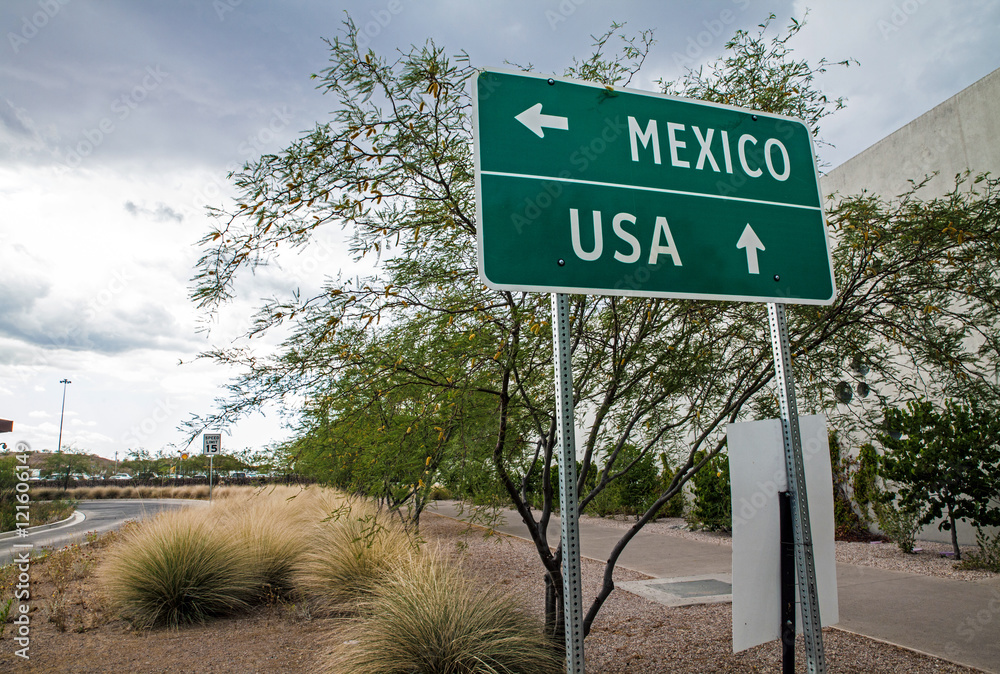As Mexico approaches a pivotal presidential election, the Biden administration finds itself in a precarious situation, bracing for potential changes in border agreements that have been instrumental in curbing illegal immigration. The frontrunner, Claudia Sheinbaum, whose policies remain largely ambiguous, poses a potential challenge to the current U.S.-Mexico cooperation, a critical concern given the immediate proximity of the U.S. election.
Sheinbaum, a member of the Morena party and former mayor of Mexico City, holds a significant lead over her opponent. Yet, her lack of clarity on policy positions, particularly regarding the bilateral border agreements, raises concerns. The April cooperation agreement between outgoing President Lopez Obrador and President Joe Biden, which aimed to reduce illegal crossings at the southern U.S. border, could be easily rescinded under Sheinbaum’s administration due to its classification as a partnership agreement not requiring Mexican congressional approval. This possibility places the United States in a precarious wait-and-see position.
The ambiguity surrounding Sheinbaum’s stance on the April agreement is a reflection of the Biden administration’s broader shortcomings in foreign policy strategy and intelligence gathering. As Josh Trevino of the Texas Public Policy Foundation aptly notes, the uncertainty is partly attributable to insufficient efforts by the U.S. administration to gain insights into Sheinbaum’s potential policies. This lapse underscores a significant issue within Biden’s foreign policy framework—an issue that could have tangible repercussions on border security.
Millions of Mexican voters are poised to elect a new leader, while American voters face their own critical decision between Republican frontrunner Donald Trump and incumbent President Joe Biden. Immigration remains the foremost issue for U.S. voters, even surpassing concerns about the economy and foreign policy. Earlier measures taken by the Biden administration aimed to stem the tide of migrants at the southern border, following a crucial phone call in late April with Lopez Obrador, wherein both leaders directed their national security teams to implement measures to reduce border crossings while safeguarding human rights.
The White House maintains optimism, expressing expectations that Mexican cooperation will persist post-election. John Kirby, National Security Council Coordinator for Strategic Communications, conveyed confidence that collaborative efforts will continue, highlighting Mexico’s recent actions to reduce the number of border arrivals. However, this hope is juxtaposed with the uncertainty surrounding Sheinbaum’s future actions and her minimal public record on such critical agreements.
Sheinbaum’s political alignment with Lopez Obrador’s policies complicates predictions about her administration’s stance. Her campaign has focused on reducing nationwide crime, a significant concern in cartel-dominated areas. However, the critical issue for U.S.-Mexico relations remains her approach to border agreements. The lack of specificity in her policy proposals leaves the U.S. administration and its citizens in a state of apprehension.
Theresa Cardinal Brown, from the Bipartisan Policy Center, suggests that Sheinbaum’s policy-minded approach may align more closely with Biden’s administration. Nonetheless, with immigration enforcement involving multiple variables, including broader socio-political factors influencing migrant decisions, the impact of U.S.-Mexico cooperation remains complex.
As both nations approach their respective elections, the strategic partnership built to manage border security hangs in the balance. The potential reshaping of U.S.-Mexico relations will not only influence immediate immigration trends but also affect long-term geopolitical and economic strategies, such as the renegotiation of the United States-Mexico-Canada Agreement scheduled for 2026.
Ultimately, the handling of border agreements and immigration policies will play a crucial role in shaping the political landscape on both sides of the border, highlighting the intricate interplay between domestic politics and international relations at a time of significant electoral decisions.



